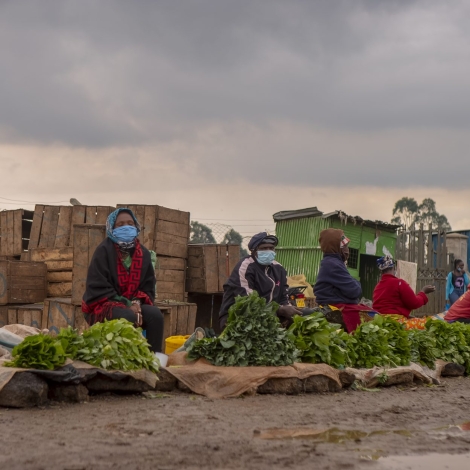Editor’s note: This article is a reprint of a page that appears in print in Appropriate Technology, Vol 47, No 2. It is published here with permission as a part of our collaboration with the magazine. For more, please see the magazine’s site: www.appropriate-technology.com.
At the time of going to press the global number of COVID-19 cases had just passed 5.5 million, resulting in 353,334 deaths, mainly concentrated on the Americas and Europe. Sadly, by the time you read this, both those numbers will have risen again, possibly sharply, with every expectation that they might continue to increase over the coming months.
Producing a new issue of Appropriate Technology in the face of such a devastating human crisis has left us wondering what to say that will be of any real value at this extraordinary moment in history. Nothing we report really matters to those who have lost loved ones in recent days and weeks or who are trapped in situations where personal protection against the virus by way of regular hand-washing and social distancing is all but impossible. We realise this and can only express our sympathy for the many who have suffered so much since this horrendous virus emerged at the end of last year.
We also recognise, of course, that it is important to remain as positive as possible at this time and to keep focusing on the needs of people around the world and on the efforts being made to protect lives and conquer COVID-19.
Many other pandemics
We also appreciate that while the majority of developed countries have been experiencing their first major health crisis in over 100 years, the arrival of COVID-19 in the developing world will be viewed as the latest pandemic or epidemic to hit some countries. While clearly devastating in its global impact, the new virus will, for some, be following other deadly diseases, such as SARS, MERS, Ebola and measles, health attacks which people in large parts of the world were able to ignore.
As we seek for long-term lessons to be learned from the current pandemic, it’s to be hoped that the global sharing in the fight against COVID-19 will change hearts and minds concerning the plight of those who face such battles on a regular basis.
In the midst of reporting on various COVID-19 issues and opinions, therefore, we have continued to look at other long-standing concerns and challenges for developing countries. We have also attempted to stay true to our normal vision of highlighting points of technological progress, focusing on projects which have already begun to make a difference to people’s lives, alongside fresh ideas and initiatives which will hopefully bear fruit in the future.
Positive progress
The potential of the work being done in Africa by the sustainable development charity ‘Send a Cow’ is a hugely encouraging project, featuring an organic planting solution called Push-Pull technology to help combat two serious problems connected to maize production (pages 18-20).
Similarly, the charity ‘Wells on Wheels’ is making a difference to the lives of many women in India by providing them with an alternative to the back and neck-breaking task of carrying water, a daily chore which can lead to chronic pain as well as musculoskeletal disorders (pages 24-25). There is also space for a report on seaweed farming; the great potential of desalination; a new specialist book review and an extended section on a range of climate change issues.
Finally, our regular listing of forthcoming events and conferences has been given a holiday for this issue, purely because most of the dates in the industry’s normal exhibition calendar have been postponed or cancelled, due to COVID-19 lockdown, travel bans and social distancing. We haven’t left the pages empty, however, turning instead to a listing of innovative and informative webinars and online opportunities (pages 62-63).
To end where we began, it only remains for me to wish you safety and protection from the virus and to express our gratitude for those who have done so much in recent weeks to nurse patients through this disease and for others who have kept essential services running in the face of great personal risks.

